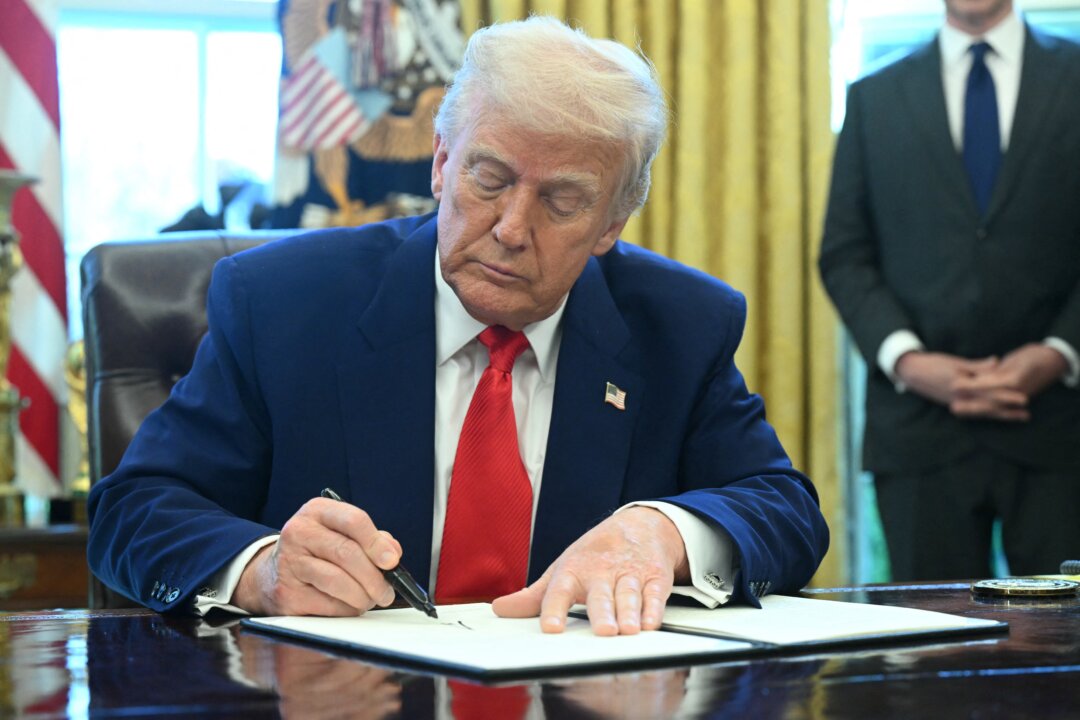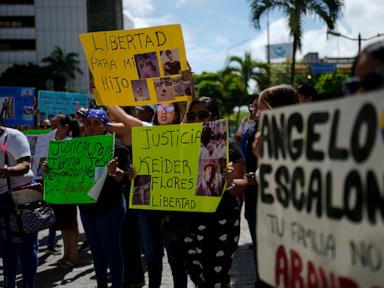It has been startling to listen to President Donald Trump and his team suggest there’s nothing they can do to retrieve Kilmar Abrego Garcia, the man they admitted in court to mistakenly deporting to an El Salvador prison alongside other migrants.
Much of the Trump administration’s image is built around the idea of strength, especially on the global front, so this display of impotence is off message. He’s the one, Trump likes to say, who holds the cards. It also contradicts Trump's notable record of freeing people wrongfully detained abroad. He’s managed to spring prisoners (usually Americans) even from adversarial nations such as Venezuela and Iran. In this case, El Salvador’s leader, Nayib Bukele, is a Trump ally whom the U.S. is paying to hold Abrego Garcia and other migrants whose legal status Trump has challenged. Surely Bukele, who is palpably eager to please Trump, could be convinced to free Abrego Garcia.
The Trump administration may not want to facilitate Abrego Garcia’s return — which the Supreme Court ordered it to do — but it’s another thing to say the administration can’t do anything.
In fact, when I reached out to five current and former U.S. officials to discuss the matter, they assured me that I wasn’t going crazy — that Trump’s and Bukele’s displays of helplessness were indeed absurd, if not Kafkaesque. Some of the officials were granted anonymity to avoid potential retaliation but most were eager to put their names down, and they provided a series of concrete moves Trump could make.
Ned Price, a former Joe Biden administration official, said Trump and his aides, for now, appear to care more about making the GOP political base happy by beating up on migrants instead of upholding the rule of law: “They see this as a fight they want to have.” Eliot Cohen, a U.S. diplomat in the George W. Bush era and frequent Trump critic, said that, for the U.S. and Salvadoran leaders, it amounts to a “brutality,” “cruelty” and “lawlessness” that are “performative and part of the brand.”
But let’s play along with the performance.
Maybe Trump — who at times acts like he knows little about the Abrego Garcia case — has forgotten his own power in this realm. What cards does he actually have to play if he decides Abrego Garcia, and perhaps the other deported prisoners denied due process, need to return to the United States?
The first step, current and former U.S. officials say, is to simply ask Bukele to hand the men back. Again, Bukele — who calls himself the “world’s coolest dictator” — wants to make Trump happy. Why deny the request?
But if Bukele resists for some reason, Trump can use incentives, pressure tactics or both to persuade the young leader to go along.
On the incentive side, Trump has numerous options. A few examples: He could offer more direct U.S. financial support for El Salvador, give it a break on tariffs or support some of its priorities in global forums.
Pressure tactics are more complicated but can go a long way.
Trump’s best immediate move could be to cut off the millions of dollars the U.S. is giving Bukele to run the notorious prison known as CECOT, where most of the deportees the U.S. has handed to El Salvador have been placed indefinitely. (Abrego Garcia, an El Salvador native whose case has received intense scrutiny, has, at least temporarily, been moved to another facility, but he’s still a prisoner.)
Another step would be to impose visa bans. Those can be targeted, such as banning Bukele’s immediate relatives from entering the U.S., or it can cover larger groups of people. In early April, the Trump administration issued a blanket visa ban on all South Sudanese citizens because the country’s government had refused to accept someone the U.S. was trying to deport. The South Sudanese government quickly agreed to accept the deportee, but there’s no sign the visa ban has been fully lifted. (The State Department wouldn’t directly answer my question about it.)
Then there are economic sanctions, which, like visa bans, can vary in scope, size and reach. During his first term, Trump was upset enough about the detention of an American pastor in Turkey that he imposed economic sanctions on two senior Turkish government officials. The move was so stunning — it targeted a NATO ally, after all — that Turkey’s currency hit a new low. Turkey fairly quickly freed the pastor, Andrew Brunson.
Trump has also been willing to wield tariffs in ways similar to sanctions, using them as an attempted remedy for concerns that are not directly related to the economy. He’s pointed to the flow of drugs, especially fentanyl, and migrants into U.S. territory asan excuse to impose tariffs on Canada and Mexico. That means a Bukele resistant to returning detainees could find his country slapped with higher tariffs.
El Salvador relies heavily on remittances from its citizens living in the United States — another pressure point for Trump, who could ban such cash flow to the country.
Trump could also try diplomatic pressure, from expelling Salvadoran diplomats to teaming up with other countries to find a way to isolate the country. Sometimes, diplomatic negotiations can often yield results in themselves, as they did when Trump previously agreed to prisoner exchanges with hostile parties such as the Afghan Taliban and Iran.
Heck, the U.S. hasn’t been above sending in its own troops to track down fugitives or retrieve hostages.
I sought comments and ran some of these suggestions by White House spokespersons but didn’t get a reply.
All of this could come down to whether Trump eventually decides the politics of bringing Abrego Garcia (and potentially other detainees) back are better than the politics of sticking with the status quo.
At the moment, despite what the Department of Justice has already admitted in court, Trump and his aides won’t publicly say they mistakenly deported Abrego Garcia to El Salvador, the one country a judge had ordered he not be sent due to threats to his life. They’re casting him as a terrorist gang member instead, despite a lack of evidence for such a claim and his having not been charged with a crime.
For now, the polls on Trump’s handling of immigration show mixed results, though there’s some evidence his numbers are slipping due to the Abrego Garcia case.
Democrats appear to believe that this is a political fight worth having, as evidenced by the growing number of themheading to El Salvador to see Abrego Garcia and other detainees. The Supreme Court also has directed a halt to the deportations, adding to the political tinderbox for Trump. Trump’s hinting that he would send U.S. citizens to the El Salvador prison may have also given Democrats an opening to make the fight about the rule of law and due process as opposed to the sticky topic of immigration.
“The president — I think he’s making a mistake,” said Ivo Daalder, a foreign policy analyst and former U.S. ambassador to NATO. “It would have been much better to have this guy back and then he could have just moved on.”
Bukele, meanwhile, has proposed a deal akin to a prisoner exchange with Venezuela, many of whose citizens are among those Trump has sent to the CECOT prison. If he succeeds, it could be even harder to reverse Trump’s deportations.
In recent years, some world leaders have increasingly sided with one political party — usually the GOP — in the United States. As I’ve written before, that’s a tactic that can work: If the party you choose wins power, they will help you, and if they lose, they will still make it hard for the winner to target you.
By siding so heavily with Trump, Bukele may be making such a bet. But there are still risks.
If the backlash against Trump is severe enough in the coming years, Democrats may regain significant power. They would have the same carrots and sticks Trump has, from tariffs to remittances, and, who knows, maybe they would be less afraid to use them.
Bukele may want to remember this as he and Trump pretend there’s no way they can send Abrego Garcia back to America.
.png)














 English (US)
English (US)